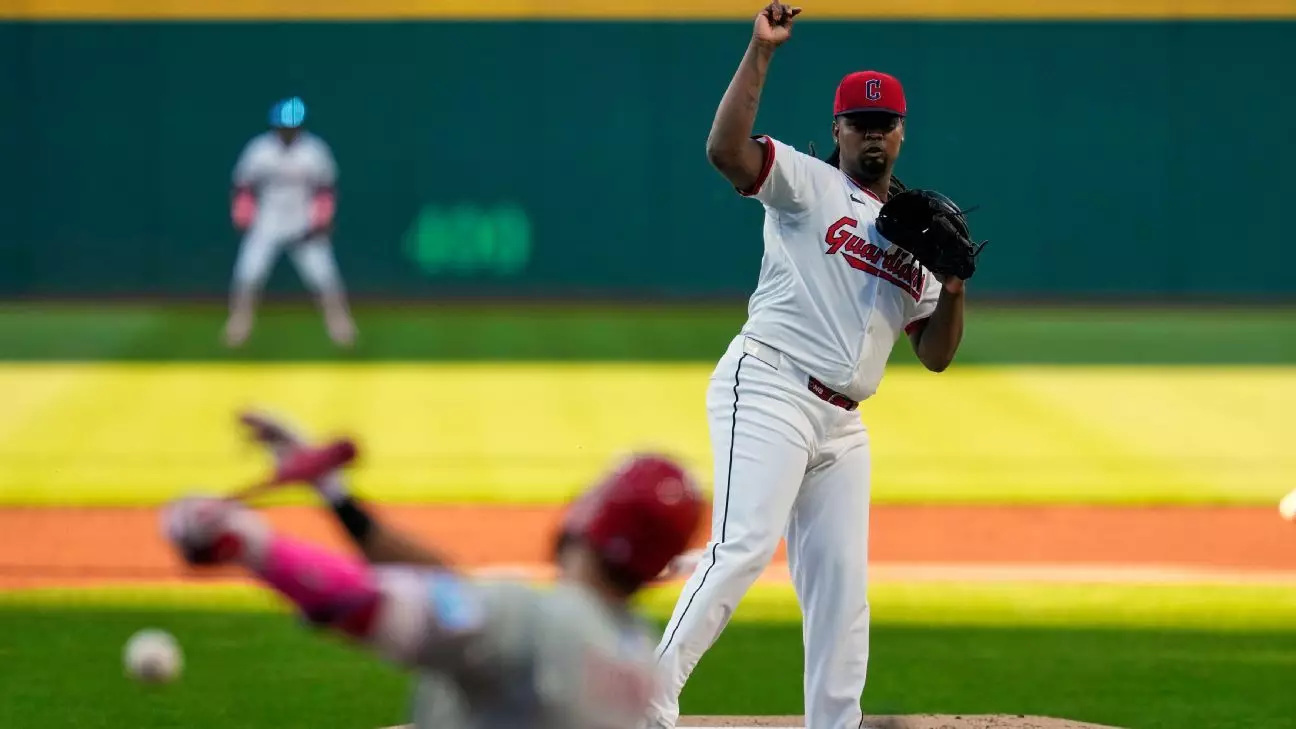Major League Baseball, an institution steeped in tradition and honor, now teeters on the edge of a credibility crisis. When news broke that pitcher Luis Ortiz is under investigation for potential gambling violations, it cast a dark pall over the integrity of the game. While such stories are often dismissed as isolated incidents, they symbolize a deeper vulnerability that threatens the very foundation of professional sports—trust. Baseball’s reputation, built painstakingly over generations, could be irreparably damaged if these allegations prove true or, even worse, if they are overlooked or mishandled.
This incident isn’t merely about a single player or a specific game. It exposes a systemic issue: the dangerous allure of gambling and the extent to which financial temptations can corrupt even the most disciplined athletes. The fact thatOrtiz’s pitches drew unusual betting activity, flagged by a reputable integrity firm, highlights the growing intrusion of gambling into the sport. Betting on micro-events like the outcome of a first pitch might seem trivial to outsiders, but it unveils a dangerous thinness in how sports organizations safeguard their games from manipulation.
### The Fragility of Confidence in the League
What makes this case even more alarming is the league’s response. MLB has placed Ortiz on “non-disciplinary paid leave,” a move dictated more by legal caution than a firm stance against corruption. Such an approach indicates a fundamental dilemma: how can fans, players, and stakeholders genuinely trust a league that seems to juggle transparency with silence? While investigations are necessary, the lack of immediate transparency risks eroding public confidence. Fans crave honesty and accountability, not hush-and-hurry tactics.
Furthermore, the timing and context deepen this concern. Ortiz is no star on the level of the highest-paid players, yet his involvement prompts questions about the accessibility of gambling to athletes at all levels. It reveals how even mid-tier players, who are trying to establish themselves, may be vulnerable to unethical influences or financial desperation. The league’s reputation, built painstakingly, is now vulnerable to collapse if it cannot convincingly demonstrate that it’s tackling these issues head-on.
### The Broader Implications for Baseball and Its Governance
MLB’s handling of this situation is intertwined with larger debates about regulation and morality in sports. The recent lifetime ban of Tucupita Marcano, along with suspensions of minor leaguers, signals that the league is taking a hard stance—yet, the Ortiz case shows that enforcement remains inconsistent. The league’s struggle to strike a balance between preventing corruption and respecting players’ rights reveals a fundamental weakness: they lack a cohesive, enforced policy that is visible and firm enough to serve as a deterrent.
Moreover, the sport’s history is intertwined with gambling scandals—most notably the infamous 1919 Black Sox scandal—that have haunted baseball for over a century. It’s only reasonable that a segment of the fanbase remains unconvinced, waiting for concrete actions rather than mere strategic damage control. The current investigation, if mishandled or dismissed, risks igniting conspiracy theories and skepticism that can linger long after Ortiz’s case is closed.
### The Cultural and Ethical Dilemma
At its core, this controversy questions the ethical boundaries of modern sports, where financial incentives and personal ambitions can overshadow integrity. The allure of microbets and the increasing normalization of betting platforms threaten to commodify the game, turning it into a spectacle of chance rather than skill. From a moral standpoint, the league must decisively demonstrate that the sanctity of competition outweighs monetary gains.
By allowing some betting activities to flourish — pizza bets, casual wagers among fans, or microbets like the outcome of a pitch — baseball risks blurring the lines between enjoyment and corruption. The league’s response to Ortiz’s case should be more than reactive; it must be transformative. Implementing stringent measures, enhancing transparency, and holding players accountable in a meaningful way will be essential to restore faith. Anything less will merely serve as a band-aid on a deep wound.
### Confronting the Real Cost of Neglect
The potential fallout from this scandal isn’t limited to Ortiz’s reputation. It threatens the broader fabric of baseball, undermining the sport’s credibility at a critical juncture where generations of fans are already questioning its relevance. If the league appears to ignore or downplay such incidents, it risks alienating those who seek integrity over spectacle—a shift that could have lasting consequences for the game’s future.
Furthermore, public skepticism towards gambling in sports, spurred by recent controversies and harsh regulatory crackdowns, underscores the need for honest leadership. MLB must recognize that its credibility is intertwined with how steadfastly it defends the game’s sanctity. Failing to act decisively could open the floodgates, leading to more scandals and the erosion of the very trust that baseball relies on to thrive. In this context, the Ortiz investigation isn’t just about one player; it reflects the league’s struggle to maintain moral authority in an increasingly commercialized sports landscape.

Leave a Reply